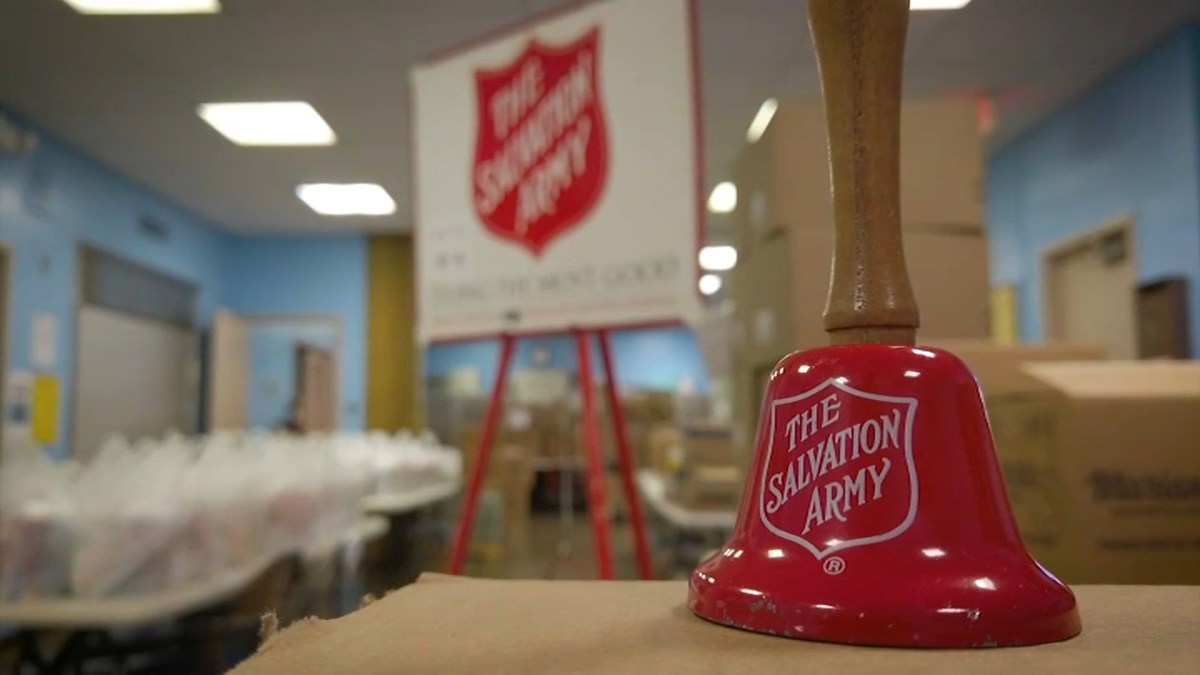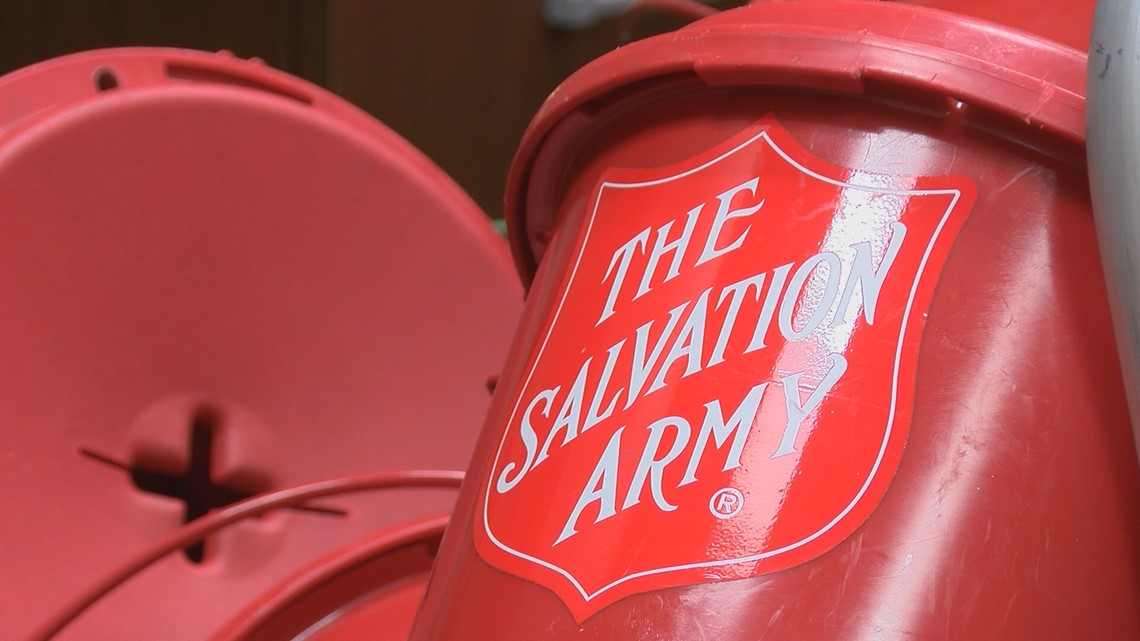The Salvation Army Donation Excluded List is a crucial guide for anyone wanting to contribute to their vital mission. While they welcome a wide range of donations, there are certain items they cannot accept due to safety, logistical, or ethical considerations.
This list is designed to ensure that donations are used effectively and safely, ultimately benefiting those in need.
Understanding why certain items are excluded helps us appreciate the Salvation Army’s commitment to responsible resource management and its dedication to providing the best possible support to those in need. This article will delve into the reasons behind the excluded list, explore specific items that are typically not accepted, and offer insights into the impact of these exclusions on the organization’s operations.
The Salvation Army’s Mission and Donation Policy

The Salvation Army is a global organization dedicated to serving those in need. They operate on the belief that everyone deserves a chance to thrive, and they strive to provide a helping hand to those struggling with poverty, homelessness, addiction, and other challenges.
Their mission is to meet human needs without discrimination, and they achieve this through a variety of programs and services.
The Salvation Army’s Mission, Salvation army donation excluded list
The Salvation Army’s mission is rooted in the Christian faith and is based on the teachings of Jesus Christ. They believe that all people are created in God’s image and have inherent worth and dignity. They are committed to serving others without judgment or discrimination, and their mission statement reflects this commitment: “To preach the Gospel of Jesus Christ and to meet human needs in His name without discrimination.”
The Salvation Army’s Approach to Accepting Donations
The Salvation Army accepts a wide range of donations, including:
- Clothing and household items
- Money
- Food
- Vehicles
- Volunteer time
They have a comprehensive donation policy that ensures that all donations are handled responsibly and ethically. This policy includes guidelines for what items they will accept, how they will be used, and how donors can ensure their donations are used effectively.
How the Salvation Army Uses Donations to Support its Programs
The Salvation Army uses donations to support a wide range of programs and services, including:
- Emergency Assistance:Providing food, shelter, and other essential needs to those experiencing homelessness or poverty.
- Addiction Recovery:Offering treatment and support programs to individuals struggling with substance abuse.
- Family Services:Providing counseling, parenting classes, and other support services to families in need.
- Disaster Relief:Responding to natural disasters and other emergencies by providing food, water, shelter, and other essential services.
- Community Development:Investing in programs that help communities thrive, such as job training, youth development, and affordable housing.
Donations are crucial to the Salvation Army’s ability to meet the needs of those they serve. They are used to fund their programs, purchase supplies, and provide salaries for their staff.
Reasons for Exclusions in the Salvation Army Donation List

The Salvation Army, like many charitable organizations, has a list of items they cannot accept as donations. This exclusion list exists for a variety of reasons, ranging from safety concerns to logistical challenges. Understanding the reasons behind these exclusions is crucial for donors who want to ensure their contributions are effectively utilized.
So, you’re thinking about donating to the Salvation Army, but you’re not sure if that old futon you’ve been eyeing is on their “no-go” list. It’s a good question, but maybe you should be asking yourself: “Can I join the army if I have flat feet?” can you join the army if you have flat feet Maybe that’s a better use of your time, or maybe you can find a new home for your futon, who knows! Anyway, the Salvation Army’s donation list is pretty strict, so check their website before you drop off that vintage lava lamp.
Safety Considerations
Safety is a paramount concern for both the Salvation Army and the recipients of their donations. Certain items pose inherent risks, making them unsuitable for donation.
- Hazardous Materials:Items like flammable liquids, chemicals, and explosives can be dangerous and are strictly prohibited. The Salvation Army cannot risk the safety of their volunteers, staff, or the public by accepting such items.
- Medical Supplies:Used medical supplies, including needles, syringes, and expired medications, pose a serious health risk. The Salvation Army cannot accept these items due to the potential for contamination and infection.
- Weapons:Firearms, ammunition, and other weapons are not accepted due to safety concerns and legal restrictions. The Salvation Army prioritizes a safe environment for everyone involved in their operations.
Logistical Challenges
While the Salvation Army is dedicated to helping those in need, they face practical limitations in handling certain items.
- Large or Bulky Items:Furniture, appliances, and other large items can be difficult to store, transport, and distribute. The Salvation Army may not have the resources to manage such items effectively, especially if they are in poor condition.
- Damaged or Broken Items:Items that are damaged or broken are often not worth repairing or reselling. The Salvation Army prioritizes items that can be reused or sold to generate revenue for their programs.
- Outdated Technology:Electronics that are outdated or no longer functional may not be valuable to potential recipients. The Salvation Army may not have the resources to properly dispose of such items.
Ethical Considerations
The Salvation Army aims to provide high-quality goods and services to those in need. This commitment necessitates a careful selection process for donated items.
- Items of Questionable Value:The Salvation Army may not accept items that are considered offensive, inappropriate, or unsuitable for resale. This includes items that may promote violence, hatred, or discrimination.
- Items in Poor Condition:The Salvation Army strives to provide items that are in good condition and safe for use. They may decline items that are heavily soiled, damaged, or otherwise unsuitable for resale or distribution.
Specific Items Typically Excluded from Donations: Salvation Army Donation Excluded List

The Salvation Army, like many charitable organizations, has a list of items they cannot accept for donation. This is primarily for safety and practicality reasons, ensuring that donated goods are usable and contribute to their mission of providing assistance to those in need.
Items Typically Excluded from Donations
Donating items that are not on the Salvation Army’s accepted list can lead to a waste of resources, as they may be difficult or costly to dispose of.
| Item Category | Specific Examples | Reasons for Exclusion | Alternative Donation Options |
|---|---|---|---|
| Electronics | Televisions, computers, cell phones, stereos | Electronics can be difficult to recycle, and many require specialized handling due to hazardous materials. | Consider donating to an organization that specializes in recycling electronics or offers repair services. |
| Furniture | Mattresses, sofas, chairs, tables | Furniture often requires specific sanitation and cleaning procedures, and damaged pieces can be difficult to repair or dispose of. | Consider donating to a local furniture bank or organization that provides furniture to those in need. |
| Clothing | Underwear, socks, swimwear, bras | These items are considered personal and require special hygiene considerations. | Consider donating to organizations that specifically collect underwear and other personal hygiene items. |
| Household Goods | Used bedding, pillows, towels, kitchenware | These items can harbor bacteria and require specialized cleaning and sanitation procedures. | Consider donating to animal shelters or organizations that provide household goods to those in need. |
| Medical Supplies | Used syringes, bandages, medications | These items can pose health risks and require specific disposal procedures. | Consider donating to organizations that provide medical supplies to those in need. |
| Hazardous Materials | Paints, chemicals, batteries, pesticides | These items can be dangerous to handle and require specialized disposal procedures. | Consider contacting your local waste management facility for proper disposal. |
The Impact of Excluded Donations

The Salvation Army’s mission is to serve the community, and a significant part of that mission is fulfilled through donations. While the organization strives to accept as many donations as possible, there are certain items that are excluded for various reasons, as previously discussed.
These exclusions, while necessary, can have a notable impact on the Salvation Army’s operations.
Yo, so the Salvation Army has this list of stuff they won’t take, right? Like, you can’t donate your old VCR or that beat-up couch. But, it’s a good thing they’re cool with accepting food, ’cause you know, sometimes folks need a little extra help with groceries, especially when it comes to getting those Food Stamps approved.
Anyway, back to the Salvation Army’s list, it’s just a heads up to make sure you’re not lugging around a bunch of junk they won’t even touch.
Challenges in Managing Excluded Donations
The exclusion of certain items creates challenges for the Salvation Army in terms of managing and disposing of unwanted donations. The organization must handle the logistics of sorting, storing, and ultimately disposing of these items, which can be a significant undertaking.
- Storage Space:Excluded items require dedicated storage space, which can be a valuable resource, especially in areas with limited warehouse capacity. The Salvation Army must carefully consider the allocation of space, balancing the need to store potentially saleable items with the need to manage excluded items.
- Disposal Costs:Disposing of excluded items can incur significant costs, especially for hazardous materials or large, bulky items. The Salvation Army must allocate resources to properly dispose of these items, ensuring compliance with environmental regulations and safety protocols.
- Staff Time:Sorting and managing excluded donations requires dedicated staff time. This can divert resources from other essential tasks, such as processing donations, assisting clients, or organizing fundraising events.
Guidelines for Donating to the Salvation Army

Donating to the Salvation Army is a fantastic way to give back to your community and help those in need. To ensure your donations are accepted and make the process smoother for everyone, follow these guidelines.
Preparing Items for Donation
It’s essential to prepare your donation items properly. This helps ensure they are in acceptable condition and ready to be used by others.
- Clean and Remove Debris:Wash and dry all clothing, linens, and household items thoroughly. Remove any dirt, stains, or debris.
- Repair Minor Damages:Fix any minor rips, tears, or loose buttons on clothing.
- Organize and Package:Group similar items together, such as clothing, toys, or kitchenware. Pack them in sturdy boxes or bags.
- Avoid Unwanted Items:Remember to check the Salvation Army’s excluded items list before donating.
Finding a Salvation Army Donation Center
Finding the nearest Salvation Army donation center is easy.
- Visit the Salvation Army Website:The Salvation Army website has an interactive map that shows donation center locations.
- Use a Search Engine:Search online for “Salvation Army donation center near me.”
- Contact Your Local Salvation Army:Call your local Salvation Army branch for their address and hours of operation.
FAQ Insights
What happens to excluded donations?
The Salvation Army has processes in place to manage excluded donations. They may be disposed of responsibly, recycled, or sold at a discounted price to generate revenue for their programs.
Can I donate used clothing with stains or tears?
Generally, the Salvation Army prefers clothing in good condition. Items with significant stains, tears, or holes are unlikely to be accepted.
Can I donate furniture that is missing parts or damaged?
The Salvation Army prefers furniture in good condition. Items that are missing parts, damaged, or unsafe are typically not accepted.
Are there specific types of electronics that are excluded?
Yes, the Salvation Army often excludes older or outdated electronics that may not be functional or safe. It’s best to check with your local Salvation Army for specific guidelines.

Welcome to my website! Here’s a brief introduction about me.
I am Charles Pham, a passionate individual with a diverse range of interests and experiences. Throughout my life, I have pursued my curiosity and embraced various opportunities that have shaped me into the person I am today.